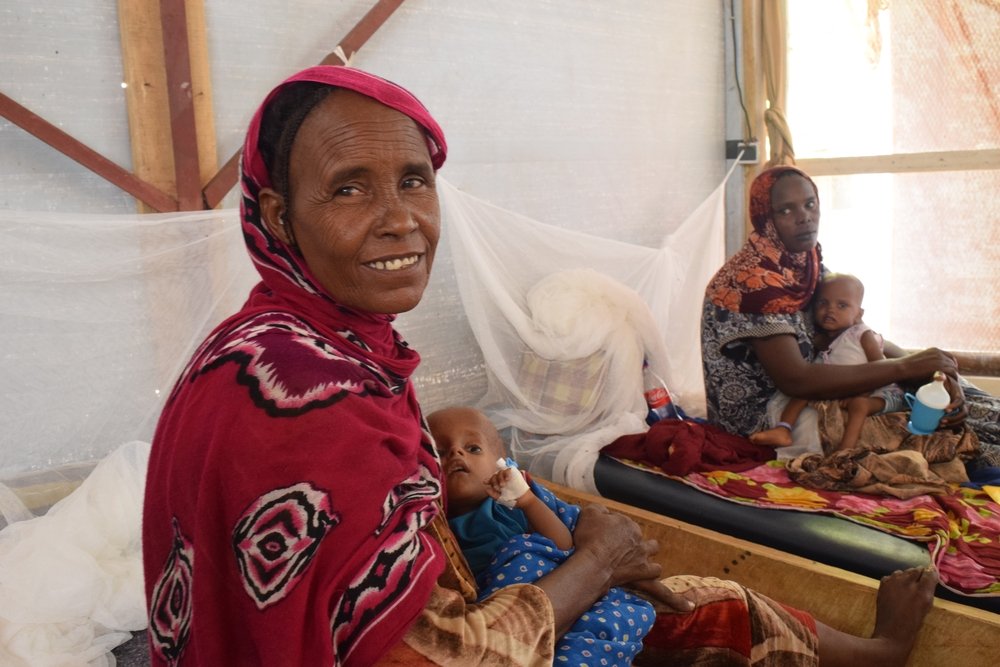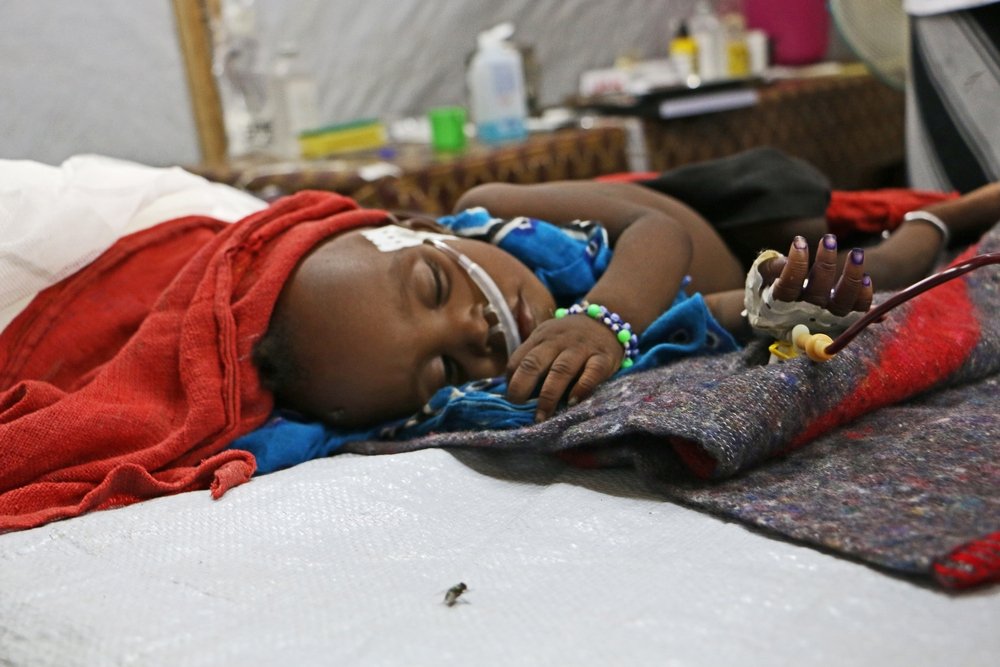Hawa Haroum is from a small village in central Chad. She shares her home with her husband, their children and her husband’s mother.
“I have five children – three girls and two boys. My sons are already married and work in the fields. I’m very happy with them. They work hard in the fields and bring home everything they find. And if they don’t work, they go out to buy food.”
She has been in MSF’s intensive care unit in Bokoro town for four days, looking after her grandson, Adeen, who is two years old. She says it feels very far from home. She is sitting on a bed in the busy ward, which can accommodate up to 70 mothers and their severely malnourished babies, and is keen to talk. She explains that she is at the hospital instead of the child’s mother, Fatima, who is at home having just given birth to her second child.

“Fatima couldn’t leave the house, so I took Adeen to the clinic to pick up some rations [enriched peanut paste to treat malnutrition] and then return home, but when the nurses saw Adeen, they said I had to come straight here. I thought I was just going to the mobile clinic and then going home again, so I wasn’t very happy when they told me this.
I’d been going with Adeen to the mobile clinic for three weeks but this time they said he wasn’t getting better and that he had to be transferred.I’ve had to leave my mother-in-law in our village – she’s a very old woman. I also have a three-year-old child and I’ve had to leave them both.
I didn’t even have the chance to get a change of clothes. I asked but they said it was too far for me to go and they couldn’t wait. There were four other women and their babies on that day who were transferred to the hospital here from Tchaway. One woman was lucky: she called her husband, who cancelled what he was doing and came on a motorbike to deliver her things before we left.”
She sounds bemused but also pleased to see Adeem getting better. “He had a fever, he was vomiting and had diarrhoea. But since he’s been here, he’s been okay. The baby hasn’t put on any weight but I can tell his health is better. I hope he continues to get better like this over the next couple of days so I can go home. I’m waiting to hear from the doctor before I know if I can leave.”
As well as severe malnutrition, Adeen also has microcephaly, an abnormal smallness of the head where the brain doesn’t fully develop. Despite this, Adeen’s head looks oversized for his incredibly thin body and has little energy.
Severe malnutrition is very common among babies and young children in Chad and often relatives may not be aware of the severity of their child’s illness because it’s what they’re used to seeing. In addition, there are few health services in Chad and they often don’t have the necessary medicine so relatives don’t always seek help.

The doctor comes and gives Adeen his hourly check-up. There’s no cure for this condition, so once he has recovered from malnutrition, he and his grandmother will return to their village. However, it doesn’t look likely that he will be discharged in the next couple of days.
Still, Howa is keen to talk about all of the medicine and support they’ve received. “They’ve given Adeen medicine and a lot of milk. They’re always checking on him. I’ve had a lot of good food.”
It’s clear that Howa is also keen to get home because she’s worried about her daughter. “I haven’t spoken to Fatima since I’ve been in the hospital. I don’t have a phone. She just has to wait for her child to come home. It must be difficult for her. Illness has separated them.”
Find out more about MSF's work in Chad.